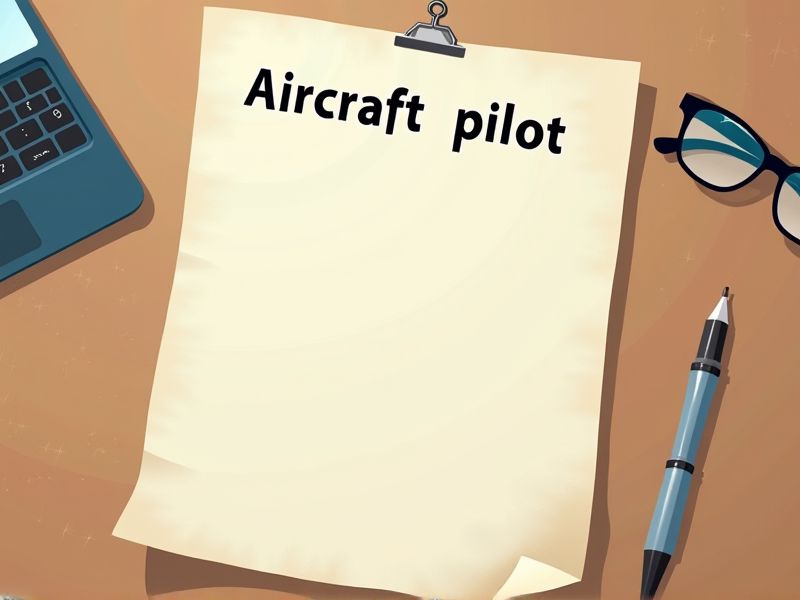
To ensure the safety of passengers and crew, pilots must demonstrate proficiency and expertise, which is validated through certifications. Regulations mandate that pilots meet educational and training standards to operate complex aircraft systems effectively. Certifications enable pilots to adhere to evolving aviation technologies and industry practices. Essential pilot certifications include those related to specific aircraft type ratings, instrument flying capabilities, and commercial operations.
Private Pilot License (PPL)
A Private Pilot License (PPL) is essential for operating an aircraft legally, as it provides the foundational knowledge of aviation regulations. It ensures pilots have the skills needed for safe flight operations, including navigation and communication. Training involved with obtaining a PPL covers critical safety procedures that protect both the pilot and passengers. The PPL also serves as a prerequisite for advanced pilot certifications, enabling further career progression in aviation.
Commercial Pilot License (CPL)
A Commercial Pilot License (CPL) is necessary to legally fly an aircraft for hire or reward, ensuring that pilots have undergone rigorous training to handle commercial flight responsibilities. CPL certification includes advanced training, which enhances piloting skills and comprehensive understanding of aviation operations. Regulatory agencies, like the FAA and EASA, require a CPL to maintain safety standards and uniformity across the aviation industry. The CPL also allows pilots to pursue various career opportunities in airlines, charter services, and cargo flights, broadening their employment prospects.
Airline Transport Pilot License (ATPL)
An Airline Transport Pilot License (ATPL) is required because it represents the highest level of aircraft pilot certification, ensuring the pilot possesses extensive aeronautical knowledge and skills. Obtaining an ATPL is crucial for pilots aiming to serve as captain on multi-crew aircraft, which is standard for commercial airlines. The license mandates rigorous training and a minimum of 1,500 flight hours, providing both safety and competency for airline operations. International standards set by bodies like the International Civil Aviation Organization (ICAO) necessitate ATPLs, harmonizing global aviation safety.
Instrument Rating (IR)
Instrument Rating (IR) enables pilots to fly under instrument meteorological conditions (IMC), allowing navigation without visual references during poor weather. It reduces the risk of spatial disorientation, a common factor in controlled flight into terrain (CFIT) accidents. Enhanced skill set gained through IR offers pilots increased confidence and precision in handling flights. Commercial aviation requires pilots to possess an IR to ensure safety and reliability in diverse flight conditions.
Multi-Engine Rating (MER)
The Multi-Engine Rating (MER) allows pilots to operate aircraft with more than one engine, which is often required for commercial aviation roles and advanced training opportunities. A multi-engine aircraft generally offers increased performance and payload capabilities, which are essential in airline and corporate aviation sectors. In emergency situations, having the ability to control an aircraft with an engine out is crucial, and MER provides the necessary training for such scenarios. Many employers in the aviation industry consider a multi-engine rating as a standard qualification, reflecting the diverse skills and versatility of the pilot.
Type Rating Certification
Type rating certification is needed for aircraft pilots because it ensures they possess the necessary skills and knowledge specific to the aircraft model they intend to operate. Different aircraft have unique systems and handling characteristics, requiring dedicated training. Regulatory agencies mandate type rating to enhance aviation safety and standardize pilot qualifications for complex aircraft. Obtaining this certification minimizes operational risks and enhances fleet flexibility for airlines.
Certified Flight Instructor (CFI) License
Obtaining a Certified Flight Instructor (CFI) license enables pilots to teach aspiring aviators, thereby increasing their own flight hours and experience. This licensure enhances a pilot's resume, potentially opening doors for advanced aviation career opportunities. Regulatory bodies require a CFI license to ensure instructors meet safety and educational standards, crucial for maintaining high training quality. Pilots with a CFI license contribute to the aviation industry's growth by addressing pilot shortages through effective training programs.
Crew Resource Management (CRM) Certification
Crew Resource Management (CRM) Certification is crucial for aircraft pilots because it enhances communication and teamwork, reducing human errors attributed to accidents. CRM training equips pilots with skills to recognize and address potential hazards effectively, improving overall flight safety. It also fosters a climate of mutual respect and effective decision-making among crew members, which is essential in high-pressure situations. Regulatory bodies like the FAA and ICAO emphasize CRM to ensure standardized practices across the aviation industry.
Aviation English Proficiency Certification
Aviation English Proficiency Certification is needed for aircraft pilots to ensure clear communication with air traffic control, which directly affects flight safety. Miscommunication in the aviation industry can lead to accidents or near-misses. The certification standardizes language proficiency across international boundaries, allowing pilots from different countries to interact efficiently. Global aviation regulations mandate this certification to maintain consistent operational protocols worldwide.
Safety Management Systems (SMS) Certification
SMS Certification is essential for aircraft pilots as it enhances safety protocols by systematically identifying and mitigating risks. It establishes a proactive approach to potential hazards, thereby reducing the likelihood of accidents. Regulatory compliance often requires SMS certification, ensuring pilots and operators meet international safety standards. Continuous safety performance monitoring and improvement are facilitated through structured processes endorsed by SMS Certification.
Summary
When you obtain additional certifications as an aircraft pilot, your career opportunities significantly expand. Employers tend to prioritize certified pilots, increasing your chances of securing a desirable position. The certifications also enhance your skills, leading to improved safety and operational efficiency. Consequently, you can command higher salaries due to your advanced qualifications and expertise.
